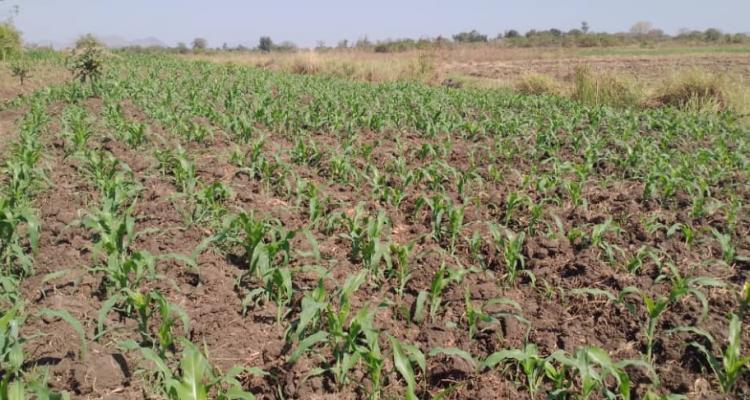
The tale of poor harvest is likely to worsen if little is done to address underlying issues, this is according to Agricultural thinktank, MwAPATA Institute.
This has been disclosed in a report which has reported that 40% of Malawi soil is in bad health, citing acidification as one of the causes behind that.
The report, titled “The Economic and Social Cost of Land and Soil Degradation in Malawi”, shows that Malawian farmland has seen an accelerated loss of fertile topsoil due to climatic conditions and extreme weather events such as droughts, floods, fires and unsuitable land uses.
The rate of yearly topsoil loss in Malawi is reported to be up to 10 times higher than the reported global average loss of 2.4 tons/ha/year, something that points to the magnitude of rapid fertile topsoil loss in Malawi.
The Institute also estimates that Malawi is losing a minimum of 2.3 million metric tons of maize per year due to soil degradation.
In a bid to restore declining soil health and improve agricultural productivity in the country, the Institute has asked the government to comprehensively finance the implementation of the Action Plan on Fertilizer and Soil Health.
“The matter of improving soil health in Malawi has become urgent because, while on-time soil improvement can have large near-term effects, failure to preserve and rejuvenate topsoil now could delay agricultural growth for generations. Malawi has already started responding to this by pioneering the development of a country action plan on fertilizer and soil health,” reads part of the report.
Among others, the Institute says financing and implementation of the national fertilizer and soil health framework could be ideal now, stating that it can help to promote best soil management practices amongst farmers across the country.
Apart from that, the Institute further recommended that there should be an awareness campaign to preach the benefits of improved soil management practices by farmers who are the true stewards of Malawi’s soil.
“Implement Malawi’s own national Fertilizer and Soil Health Framework and Action Plan that bridges policy, research, and programmatic action and incentivizes farmers and communities to adopt improved soil management practices and collectively restore natural resources at both farm and landscape levels.
“Launch a public awareness campaign on the importance of soil health to agriculture, water, and climate resilience, and work across multiple stakeholders to promote good practice,” recommends MwAPATA Institute.
The brief further states that fertilizers may seem to be the answer to the decline in soil nutrients. However, it says fertilizer applications have limited effectiveness without corresponding erosion control and restoration of soil organic matter.
The Institute added that consistent inorganic fertilizer application has been shown to accelerate soil acidification which has been on the rise across the country and says high soil acidity reduces the capacity of soils to avail essential nutrients to plants and thus hampers plant growth.
MwAPATA further reported that evidence on the state of topsoil in Malawi highlights the alarming speed at which fertile topsoil is lost nationwide and added that if left unaddressed, it will inevitably lead to a further decline in agriculture productivity.
Last year, Malawi developed a 10-Year Fertilizer and Soil Health Action Plan whose goal is to improve soil health that will result in increased agricultural productivity which provides an opportunity for state and non-state actors to join hands in implementing policies and programs that would improve soil productivity in Malawi by 2033.













